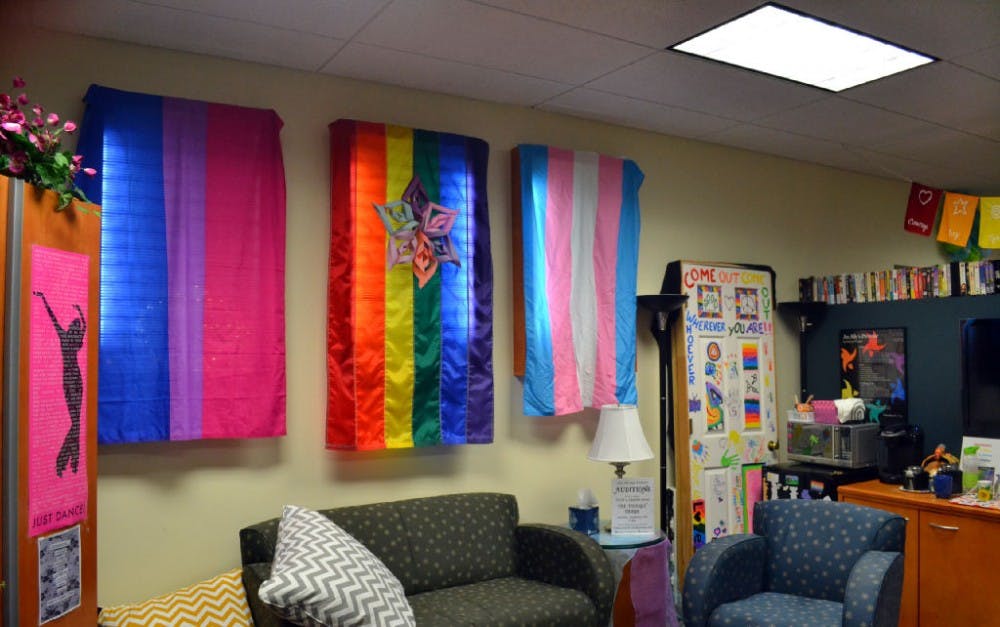LGBT Center staff members answer your questions about the over-sexualization of queer bodies, polyamory and gender privilege.
Those of us who write for Query A Queer do not pose as representatives for the entire LGBTQ communities. The responses to questions are grounded in our personal life experiences and are a starting point to better understand the complexities of sexual and gender diversities. No definition or explanation is perfect or is intended to be perfect — our hope is to spark curiosity in you so you can further explore the fascinating world of LGBTQness.
Why is it problematic that queer bodies are over-sexualized, especially when it comes to “invasive questions”?
Jasper: There are a lot of reasons why the over-sexualization of queer bodies is problematic. An aspect of over-sexualization is objectification. That means seeing a person as an object or a possession more than a human. This constant focus on sex and genitalia when dealing with the queer community takes the overall focus off of the struggles that come with being queer and who we are as people and turns sexuality and gender into a matter of sex, rather than the complicated ideas, opinions and culture that is being queer. As for invasive questions about bodies and sex, simply imagine a near stranger asking you questions about your genitals, or what you do in private with your partner, or even why you don’t have/want a partner. It is a very uncomfortable situation, and the answers to these questions are very private. If a queer person wants to share these types of things with you, they will! If you wouldn’t ask a cisgender heterosexual person your question, you probably shouldn’t ask a queer person.
{{tncms-asset app="editorial" id="1f66dafe-bd74-11e5-841f-5bc571b2e1b3"}}
Is polyamory the same as polygamy?
Sam: Though the two words share the same prefix (poly being Greek for “many”), and both describe forms of non-monogamous relationships, they have very different meanings. Polygamy refers to being married to more than one spouse at a time and has two forms, polygyny and polyandry. Polygyny is the more well-known form with one man married to multiple women, while polyandry is where one woman is married to multiple men. Both forms have been practiced around the world by different cultures and religions during different time periods, though polygamy is currently illegal in the U.S. Polyamory is the philosophy and practice of maintaining multiple sexual and/or romantic relationships simultaneously, where there is full knowledge and consent from everyone involved. Polygamy focuses on a hierarchical power structure where the consent of those involved is not important or a priority. Though some forms of polyamory involve hierarchical power structures, everyone consents and agrees to enter that structure willingly.
What is gender privilege?
Ryan: As a man I am steeped in privilege, of which I have earned none. I am far less likely to face sexual harassment in the workplace, my masculinity will not be called into question if I decide to not have children, I do not have to worry about my wardrobe or the message what I wear sends about my sexual availability, my career will not be called into question if I have a family and I have the privilege of being unaware of my privilege. This is gender privilege, the unearned benefits that some have over others because of their perceived gender. Gender privilege is also extended to those whose perceived gender matches the gender they were assigned at birth. This is called being “cisgender." Cisgender individuals can use public restrooms without fear of abuse, intimidation or arrest. They have the ability to blend in the world around them without being gawked or laughed at because of their gender expression. Cisgender people do not have to convince their parents of their true gender or constantly remind them over and over to use proper gender pronouns. This is only the tip of the iceberg. So what can you do? Get informed, ask your friends, ask questions and don’t be afraid to utilize university and community resources such as the LGBT Center.
Jasper Shell (Outreach Coordinator), Sam Haug (Community Coordinator) and Ryan Lovingood (Graduate Assistant) are all staff members at the LGBT Center.
Have LGBTQ related questions? Send them via email to lgbt@ohio.edu or to oulgbtcenter@gmail.com; via Tumblr (oulgbtcenter); via Twitter to @oulgbtcenter with hashtag #qaqueer; or post/message to Facebook (oulgbtcenter). Questions will always appear as anonymous in our responses. All queries and questions are welcome, so don't hold back and query a queer!






